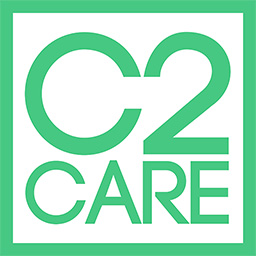Why confront my fears to treat my phobia?

Fear is a primary emotion that accompanies the awareness of a threat, a danger, when it is real, present. When I anticipate a danger, it is not exactly the same emotion but what we call “anxiety”. It is very intuitive not to want to be afraid, not to want to feel anxiety, as it seems natural to seek relief from pain. When I am confronted with something I fear (e.g. an injection, vomit, the judgement of others, a car, a dog, a spider…), anxiety arises in me. It can be felt with more or less intensity.
To feel better, I may try to escape the situation: either by avoiding (not confronting the situation that generates fear, anxiety) or by escaping (confronting but facing the intensity of the emotion felt, extracting myself from the anxious situation). This type of behaviour is not problematic in itself when it is isolated, however, most of the time this type of securing behaviour tends to increase. The big problem with avoidance is that it soothes my negative emotion in the very short term. If I am soothed in the very short term I will tend to repeat this ‘safety’. Thus, by avoiding I do not allow my emotions to live their emotional life, i.e. to be born, to live and to disappear. Moreover, by avoiding I avoid my brain to activate its super power of adaptation: indeed we tend not to consider the high capacities of our body to adapt! Let’s say you move near a bell that rings every 15 minutes. You are likely to have these thoughts: “Why didn’t I think of that?”; “I hope it doesn’t ring at night”; “Well, I’ll send my notice to give my flat back at the end of the month”. It is also likely that you are aware of the ringing of the bells every 15 minutes, but you are unlikely to pay much attention to them after a few days and hardly hear them at all after a few months.
In the case of a phobia, exactly the same thing happens (except that the bell is not perceived as a threat), i.e. if I accept to expose myself according to the rules of a therapeutic exposure, my brain will get used to it and will end up not generating (or generating with much less intensity) any anxiety. You can understand this phenomenon better by talking about another emotion: joy. Imagine that you meet a friend who tells you a very good joke. You will laugh (your emotion emerges), continue to laugh, perhaps even experience a fit of giggles (your emotion lives on) and then you will gradually stop laughing (your emotion disappears). Now imagine that shortly afterwards you meet your friend who tells you this joke again: you may laugh again (maybe as much, maybe a little less intensely, maybe a little less long). Now imagine that your friend tells you this joke a third time and then a fourth time. It may be the best joke ever, but there’s no way you’ll laugh again and again after you’ve told it several times. Perhaps the joy will even give way to another, less pleasant emotion! Again, this emotional principle reflects our body’s ability to adapt. We have mentioned joy here, but the same processes are activated when I expose myself to fear and anxiety. Hence the importance of confronting oneself to treat one’s phobia!



